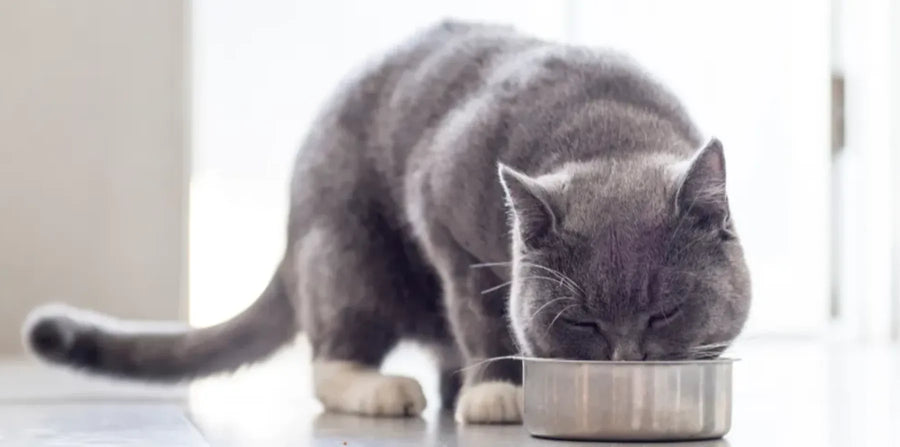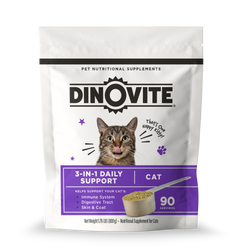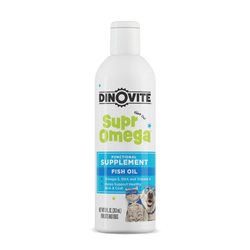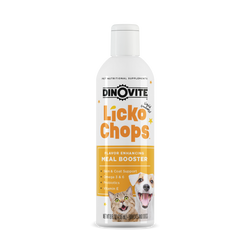Choosing the Best Food for Your Cat

What is the Best Food to Feed Your Cat? | Cat Food Tips
A healthy cat starts with balanced nutrition. Whether you're making your own homemade cat food or buying a comercially available diet, it's key to ensure your cat's food delivers the nutrients they need to thrive.
Choosing the Right Food for Your Cat
- Always select a cat food that offers complete and balanced nutrition. This means that the food is nutritionally adequate and delivers all the nutrients at the recommended levels that your cat needs to maintain its health.
- Ensure your cat's diet is appropriate for their life stage and health status. Factors such as kitten versus adult, indoor versus outdoor, weight management, or special dietary needs will impact your cat's daily nutritional requirements.
- Pay attention to feeding guidelines and give your cat the appropriate daily amount of food based on their weight, activity level, and life stage. Many cat owners free-feed, leaving their cat full access to a heap of dry food throughout the day, which could inadvertently cause overfeeding and weight issues.
What Makes a Balanced Cat Diet?
- Protein: Protein is a crucial component of a cat’s diet as they are obligate carnivores, meaning their bodies rely on nutrients only found in animal-based proteins. Cats require specific amino acids for various physiological functions that are found predominantly in animal tissues. A balanced cat food should have high-quality meat as the main ingredient, like chicken, turkey, beef, or fish.
- Taurine: An essential amino acid for cats, taurine plays a vital role in maintaining healthy vision, heart function, and reproductive health.
- Fat: Fat is a concentrated energy source for cats that provides much more energy compared to protein or carbohydrates. Adequate fat in the diet contributes to healthy skin and coat and plays a role in the absorption of fat-soluble vitamins that support important functions like vision, bone health, and immune system. High-quality fat sources include animal fats (ex. Chicken fat), fish oil, and vegetable oils.
- Vitamins: Vitamins are essential nutrients that play a crucial role in maintaining a cat’s overall health. While cats can synthesize certain vitamins, others must be obtained through their diet. Required vitamins for cats include choline, vitamins A, D, E, and K, and B vitamins thiamine, riboflavin, niacin, pantothenic acid, pyridoxine, biotin, folate, and cobalamin (B12). Vitamins can naturally be found in sources like animal tissues, fruits and vegetables, whole grains, and vegetable oils.
- Minerals: Minerals support vital functions such as bone health, nerve function, fluid balance, and enzyme activation, and more. Required minerals for cats include calcium, phosphorus, magnesium, potassium, sodium, chloride, iron, copper, zinc, manganese, selenium, and iodine. Minerals can come from fish or animal meat and organs, vegetables, and whole grains.
- Water: While not always associated with food, water is essential for cats for proper hydration, digestion, kidney function, prevention of urinary issues, and more. Encouraging cats to drink water is important, especially since they may not have a strong instinct for drinking compared to their water needs. Providing fresh and clean water in a bowl or fountain and incorporating foods with high moisture content like wet food are ways to ensure they stay adequately hydrated.
- Carbohydrates: Compared to other animals, cats have a lower requirement for carbohydrates and high carbohydrate content may lead to obesity, diabetes, or other health issues. If carbohydrates are included in a cat’s diet, it should be at a low level and ideally from low-glycemic sources.
- Fiber: Cats have a limited ability to digest plant-based fibers but controlled amounts can be beneficial. Adequate fiber from natural sources like beet pulp, pumpkin, or certain grains can help promote healthy digestion in cats and assist in managing hairballs.
Does My Cat Need Supplements?
It has been well established that certain nutrients can have health benefits for cats when fed above the AAFCO (American Association of Feed Control Officials). Especially if preparing homemade cat food, additional supplementation in the diet can help ensure your cat is getting what they need.
A supplement like Dinovite for Cats can be used in conjunction with a homemade or commercial diet to boost certain nutrients. Packed with prebiotics, probiotics, omega fatty acids, vitamin E, zinc, and other beneficial nutrients, Dinovite’s daily powdered supplement helps support your cat’s skin and coat health, digestion, and immune system.
Supplements can also benefit your cat if you’re looking to support a specific function, such as skin and coat.
*All information is for educational purposes only and is not intended to replace the expert advice of a veterinarian.
Related Products



